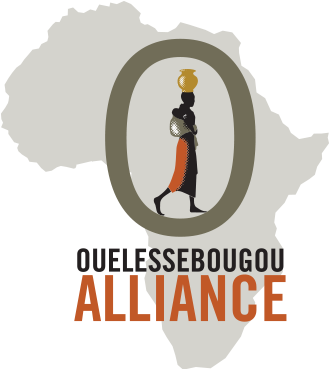Malian Student Spotlight: Mariam Samake
Mariam Samake
In honor of International Day of the Girl, I am spotlighting a girl from the Ouelessebougou region of Mali. Mariam is 18 years old and a ninth grader. She attended the Alliance’s partner elementary school in Tamala. Here is what she has to say.
What is it like to be a girl in Mali?
To be a girl in Mali is difficult because we have lot of household work early in the morning before we go to school. Because of that, girls come to class late sometimes. It affects our education because we are not able to catch up on the previous lessons that our teachers teach before we come to class. If our teachers give these lessons we miss in our class during the tests and exams, we will fail them. When some girls fail once or twice their tests and exams, they are more likely to drop school.
What are the challenges you face?
The first biggest challenge I face is during the rainy season because my family does not have enough food to eat. We have lack of food in our family. In the dry season, we can cook three kg of rice or millets for lunch and three kg for dinner. In the rainy season, my family reduces to 2 kg for lunch and dinner. We do not get enough food to eat in the rainy season. It is very difficult.
The second biggest challenge I face in the dry season is lack of water. I have to walk one and half miles to get water from the school pumps. I can find so many people at the pump and I have to wait for forty minutes in order to get water. I usually wake at 5 am and come to get water at 6 am. Sometimes, we take the donkey cart or bicycle to get water from the school pump.
What is a day like for you?
Every day, I wake up at 5 am, pray, and greet my parents. After that, I wash clothes and dishes and have my breakfast and get water from the wells or pumps. I also have to wash and fill my family’s yard with water, I go to collect shea nuts in the bushes, and search firewood early in the morning before my class. It is too tiresome sometimes. Then I go to school.
At noon, I go to my parents’ farm to harvest peanuts, millet, corn, and beans before the afternoon class. After the school in the afternoon, I sweep our family yard and houses, heat water for my parents, help wash up my family, and wash the dishes. At night, I learn my lessons and go to bed.
How have you benefitted from receiving a formal education at an Alliance partner school?
The first benefit I got from the Alliance education is staying in school without having to get married. In my village, several girls marry before they are eighteen, especially when they do not go to school.
The second benefit is I learned to work hard so I can change my parents’ lives conditions as well my extended family.
The third benefit is now I can educate my children one day. I can look at their notebooks and help them study at nights. We had great teachers at the Alliance’s partner school that helped us to come to the middle school.
How do the Days for Girls hygiene kits the Alliance distributes help you and your other girls at school?
The hygiene kits are so helpful and important for the girls in our school because some girls can suddenly get their period when they are in school. They can go directly to the bathroom and use their kits without going home and come to the class. They always have their kits in the school bag when they feel like their period may come soon. It is the best way for the girls to stay in school.
Before we got the hygiene kits, many girls’ skirts and clothes became dirty with blood in school. They were too ashamed and some girls could quit school if that happened to them in school in front of boys. Also, before the kits, when our girls started their period, they would stay home until it is over. They miss classes for three to seven days. I really like the hygiene kits and they last longer than pads. We can wash the kits, but we cannot wash pads.
What are your hopes for the future?
The hope I have is to finish my education and become an OB/GYN. I would like to become an OB/GYN because I would like to save girls and women lives in my village and country. If I become an OB/GYN, I can also make a lot of money to help my parents and extended family.


